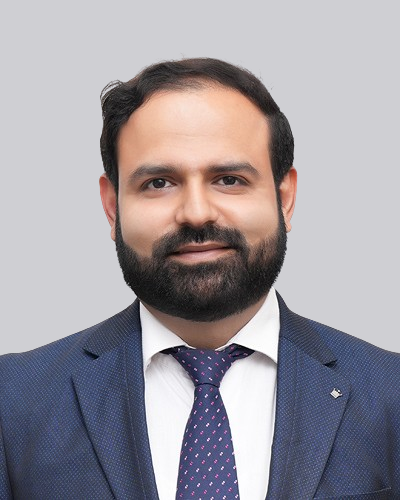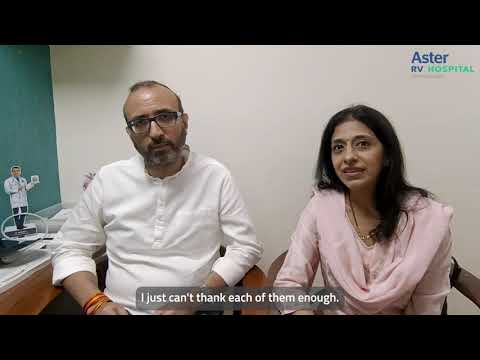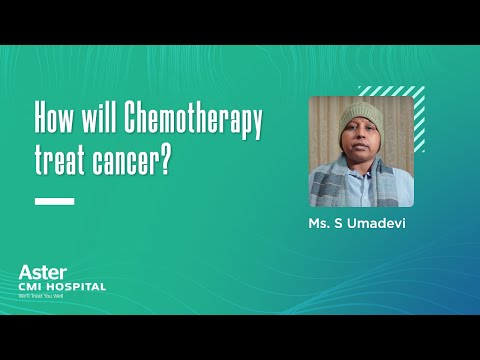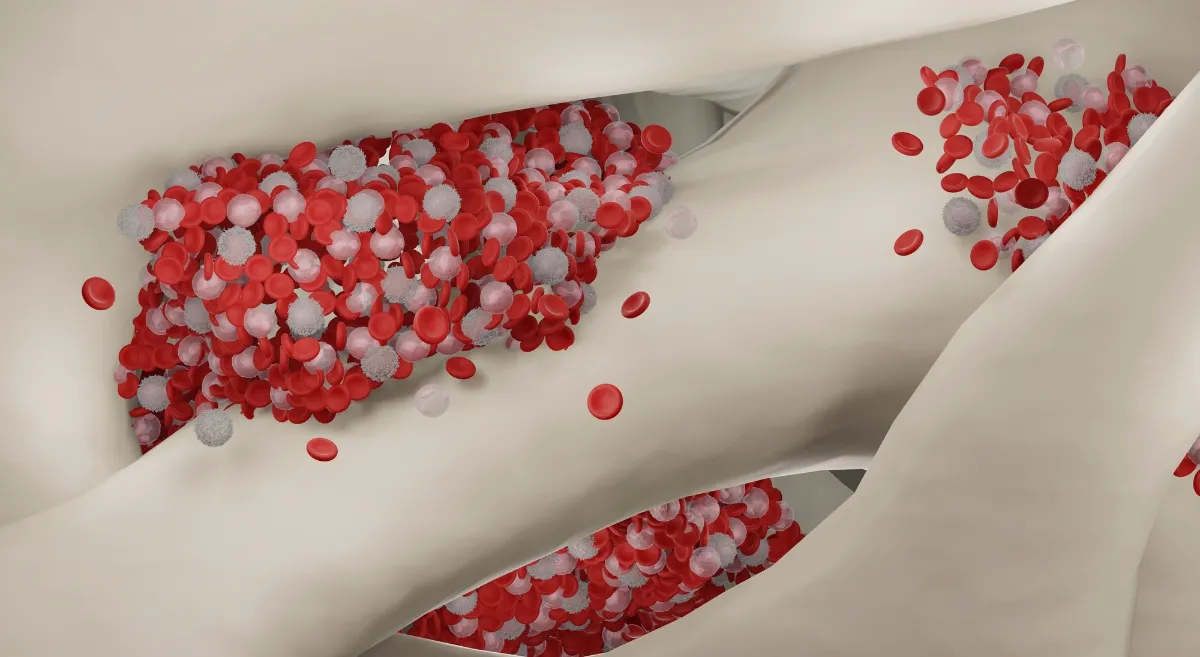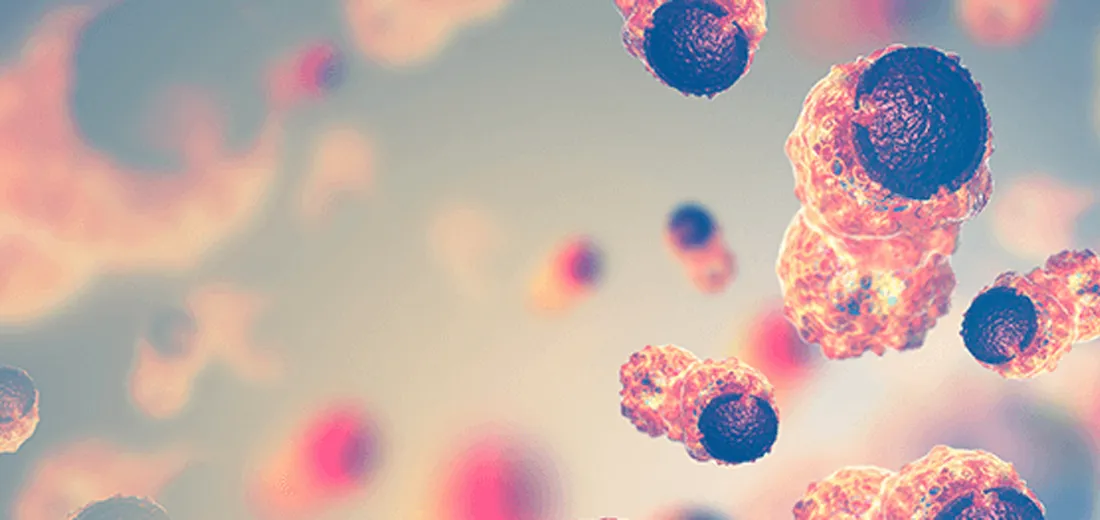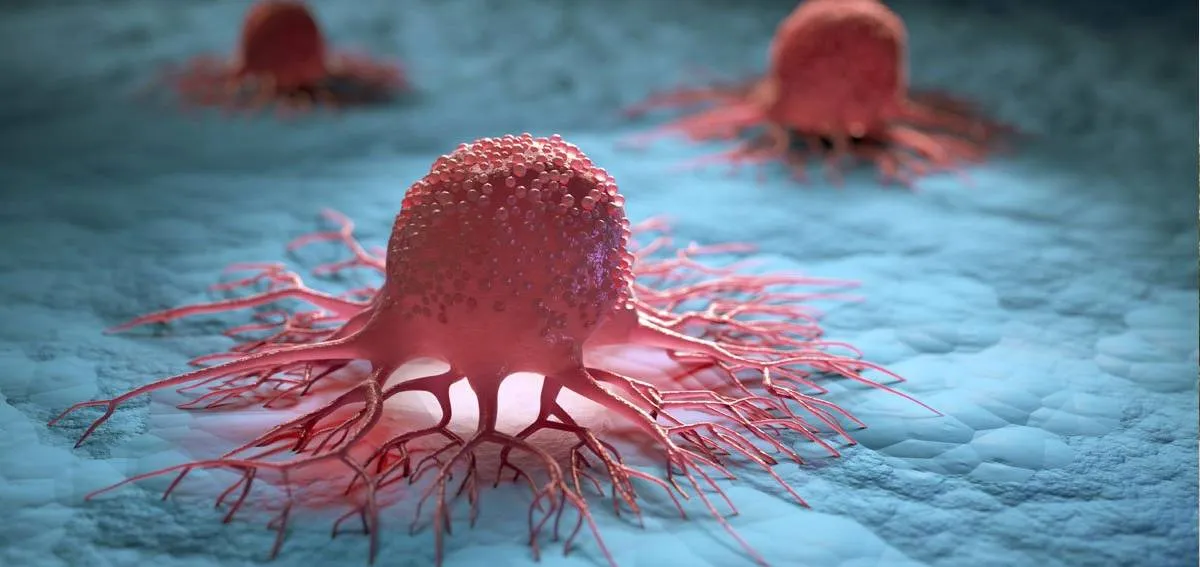The Department of Medical and Hemato Oncology at Aster International Institute of Oncology (AIIO) is dedicated to delivering cutting-edge oncology services that stand at the forefront of the field. Our commitment is characterized by an impressive fusion of medical expertise, cutting-edge technology, innovative approaches, and an unwavering focus on providing exceptional patient care.
In our esteemed institute, every individual seeking cancer treatment is welcomed into a multidisciplinary care paradigm. Our approach is rooted in collaboration and knowledge-sharing among a diverse team of experts, including medical oncologists, surgical oncologists, radiation oncologists, pain and palliative medicine specialists, and psycho-oncologists. Together, these specialists convene in a multidisciplinary tumor board, where they pool their collective wisdom and experience to craft a comprehensive and patient-centric management plan tailored to the unique needs of each individual.
For patients who are candidates for systemic therapy, which may include chemotherapy, targeted therapy, immunotherapy, or a combination thereof, we prioritize a meticulous and patient-centered approach. This begins with a thorough assessment and in-depth counseling session. During this critical phase, our aim is to empower patients with knowledge and ensure they have a deep understanding of their diagnosis, the intricacies of their treatment plan, the overall prognosis, expected treatment outcomes, and the potential side effects and complications that may arise.
A pivotal component of our patient-centric care model is our dedicated team of clinical pharmacists. These experts play a pivotal role in the patient's journey. They take on the crucial responsibility of elucidating the planned chemotherapy protocols and addressing any concerns or inquiries related to specific toxicities and potential adverse effects. This dedicated support extends to both patients and their caregivers, ensuring that they are well-informed and well-prepared for the treatment process.
At AIIO, we go beyond the realm of traditional medical care. We strive to empower our patients with knowledge, support, and a personalized approach to their cancer journey. Our commitment is to provide the highest standard of care, blending expertise, innovation, and technology to ensure the best possible outcomes for every patient entrusted to our care in the fields of Medical Oncology, Hemato-Oncology, and Stem Cell Transplantation.
Advanced Technology & Facilities
Well equipped with the latest medical equipment, modern technology & infrastructure, Aster Hospital is one of the best hospitals in India.
- Pain and Palliative Care Diet
- Physiotherapy
- Psychological
- Genetic Counselling Clinic For Lifestyle Against Cancer Recurrence Full-fledged Ayurveda Department.
Our state-of-the-art facilities incorporate cutting-edge technologies, ensuring precision in diagnostics, treatment, and monitoring, all aimed at providing our patients with the most effective and advanced care available.
- Intra Operative Electron Radiation Therapy (IOeRT)- 1st time in India which delivers precise radiation directly to a tumour during surgery.
- State-of-the-art LINAC (Elekta Versa HD)- helps to deliver very accurate external radiation beams with pinpoint accuracy during radiation therapy treatment.
- Digital PET/CT(United Imaging, UMI 550 Digital PET/CT scanner)- It is super-fast, taking images quickly with a rotation speed of 0.5 seconds.
- 4th Generation Da Vinci Robot Surgical System- makes use of highly magnified, 3D high-definition views of the surgery area and robotic arms to carry out minimally invasive surgery precisely.
- 3D Mammography (Selenia Dimensions Mammography System)- detects 20%-65% more aggressive breast cancers compared to 2D alone.
- HIPEC/PIPEC Procedures- Advanced treatment procedures, revolutionizing cancer care, enhancing survival rates, and significantly improving the quality of life.
- Scalp cooling system- To minimize hair loss during chemotherapy.
Faqs
Want to find out more about the treatment? The answer to your questions can be found below.
What is Medical Oncology?
Medical Oncology is a type of cancer care that uses different types of therapies such as chemotherapy, immunotherapy, hormone therapy, and targeted therapy for the diagnosis and treatment of malignant tumors. This type of treatment works effectively when combined with other types of cancer therapies such as radiation and surgical oncology.
What are the different types of treatments used under medical oncology?
There are different types of treatments used in medical oncology. These include -
Chemotherapy - This involves using different types of drugs for cancer treatment that work towards stopping or slowing down their growth. This type of therapy is generally used to treat recurrent or metastatic cancers (cancer cells that spread to other parts of the body). Chemotherapy drugs are usually administered orally, intravenously or injected directly into the fluid surrounding the brain or the abdominal cavity.
Hormone Therapy - Hormone-dependent or hormone-sensitive cancers are treated using this therapy. Hormone cancers usually use hormones for their growth. Cancers such as breast and ovarian cancers are typical examples of hormone cancers. Therefore, hormone therapy uses medicines to stop or decrease the production of hormones in the body and stops the growth of cancer cells.
Targeted Therapy - This is an advanced cancer treatment that uses drugs to target the specific proteins and genes related to cancer growth. These drugs stop or restrict the spread of cancer cells inside the body.
Immunotherapy - It is an innovative medical oncological procedure that uses the body’s immune cells to restrict the growth of cancer cells. In this procedure, the body’s immune mechanism is activated to destroy the infected cells and improve the functioning of the immune system.
What is chemotherapy?
Chemotherapy is a cancer treatment that uses drugs or medications to destroy cancer cells. It is one of the main types of cancer treatment.
Is chemotherapy painful?
No, chemotherapy is usually not painful. However, some people may experience side effects, such as nausea, fatigue, and loss of appetite.
What should I expect during chemotherapy?
During chemotherapy, you may experience side effects such as loss of appetite, fatigue, and nausea. You may also experience other side effects, such as hair loss, mouth sores, and skin changes.
How often will I have chemotherapy treatments?
The frequency of chemotherapy treatments varies depending on the type of cancer and other factors. Generally, chemotherapy treatments are given every 2 to 3 weeks.
What can I do to manage the side effects of chemotherapy?
There are several ways to manage the side effects of chemotherapy. These include keeping a regular schedule for eating, getting plenty of rest, and avoiding fatiguing activities.
What are the long-term effects of chemotherapy?
The long-term effects of chemotherapy vary depending on the type of cancer, the individual, and other factors. Possible long-term effects include fatigue, cognitive changes, nerve damage, and organ damage.
How will chemotherapy affect my daily life?
Chemotherapy can affect your daily life in several ways. For example, you may experience fatigue, nausea, and other side effects. You may also find it challenging to work or take part in activities you used to enjoy.
Who should I contact if I have additional questions?
Patients should contact their healthcare team
Are there any long-term effects of an allogeneic transplant?
There can be various long-term effects from an allogeneic transplant, including increased risk of infection, fertility issues, and late-onset organ damage. Patients must discuss these risks with their doctor before transplant.
What lifestyle changes are necessary for an allogeneic transplant patient?
Allogeneic transplant patients must make lifestyle changes to help maximize their chances of a successful transplant. This may include quitting smoking, regular exercise, avoiding certain foods or medications, and staying up-to-date on immunizations.
What is the cost of an allogeneic transplant?
The cost of an allogeneic transplant varies depending on the specific procedure and the patient's insurance coverage. Generally, the costs can range from tens of thousands of rupees to hundreds.
How can GVHD be prevented?
GVHD can be prevented with immunosuppressant medications and regular monitoring by a doctor.
What are the risks of an allogeneic transplant?
Allogeneic transplants can cause a range of severe side effects, including infection, bleeding, graft-versus-host disease, and organ damage. There is also the potential risk of the transplant being unsuccessful.
What is the likelihood of finding a suitable donor?
The likelihood of finding a suitable donor depends on many factors, including the patient's age, ethnicity, and family history. Additionally, the closer the donor is related to the patient, the higher the chances of finding a compatible match.
What is an allogeneic transplant?
An allogeneic transplant is a type of stem cell transplant, where stem cells are donated by another person, usually a close family member.
How is an Autologous Transplant different from other types of transplants?
Autologous Transplants are different from other types of transplant procedures in that they are done with a person’s own cells, tissues, or organs, usually due to cancer or other diseases. Other types of transplants may involve donor tissues or organs.
What do I need to do to prepare for an Autologous Transplant?
Preparing for an Autologous Transplant involves several steps. These can include giving informed consent, having blood and other lab tests to ensure compatibility, and discussing any medications, lifestyle changes, or diet modifications with your doctor.
How soon after an Autologous Transplant will I be able to return to my regular activities?
You should follow your doctor’s instructions for when and how to resume activities. Generally, a return to activities can usually occur after a few weeks or months, but this varies depending on your individual situation.
How will I know if my Autologous Transplant was successful?
Your doctor will monitor your outcome to determine if the Autologous Transplant was successful. They may also use imaging or other laboratory tests to measure your progress.
Does an Autologous Transplant have any long-term side effects?
Generally, an Autologous Transplant has minimal side effects that last a few weeks after the procedure. Rarely, there is the risk of complications that can last longer, such as infection or organ dysfunction.
How long does an Autologous Transplant take?
The time taken for an Autologous Transplant varies depending on the type of cells and tissues being used and the specific disease or medical condition being treated. Generally, the procedure can take up to three weeks or longer.
Why is an Autologous Transplant done?
Autologous Transplant is done to replace damaged or missing cells and tissues as a result of cancer or other diseases. It can also improve a patient’s quality of life or reduce the side effects of certain treatments.
What is immunotherapy?
Immunotherapy is a type of medical treatment that aids your immune system fight cancer and other diseases. It can also be used to reduce the side effects of certain treatments, such as chemotherapy.
How does immunotherapy work?
Immunotherapy strengthens or reprograms your immune system to recognize and fight off cancer or other diseases. Immunotherapy can involve drugs, biological therapies using antibodies, or vaccines.
Is immunotherapy safe?
Immunotherapy is generally considered a safe and effective treatment for many conditions. However, like any medical treatment, it can have side effects. Talking with your doctor about all risks and potential side effects is important.
How often do I need immunotherapy?
The frequency of immunotherapy is determined by the type of condition being treated and your individual health needs.
Is immunotherapy the same as a vaccine?
No, immunotherapy is not the same as a vaccine. Vaccines are designed to prevent a disease, while immunotherapy is used to treat a disease.
Is immunotherapy used in combination with other treatments?
Yes, immunotherapy is often used along with other treatments for cancers, such as chemotherapy or radiation therapy.
Is immunotherapy available at my local hospital?
Immunotherapy is available at some hospitals and cancer treatment centres. You must speak with your healthcare expert to check if immunotherapy is available at your local hospital.
What are the different types of tumours that are treated under medical oncology?
Majorly two types of tumours are treated under medical oncology. These include malignant and benign tumours. While malignant tumours are cancerous, benign tumours are harmless and do not spread to the other parts of the body. These tumours continue to grow until their progress is stopped using different types of treatments such as medical oncology, surgical procedures, and radiation therapy.
What is the role of a medical oncologist?
A medical oncologist is usually a doctor who provides treatment and medical care to a person diagnosed with cancer using chemotherapy, immunotherapy and targeted therapy. These doctors are involved in patient care and management throughout the course of the disease. The role of a medical oncologist also includes -
- Explaining the procedure of diagnosis, available treatment and the stages of cancer.
- Ensuring compassion and quality care.
- Assisting patients in managing the symptoms and the side effects of cancer and its treatment.
Are there different types of chemotherapy?
Yes, there are several different types of chemotherapy. These include targeted therapy, immunotherapy, hormone therapy, combination therapy, and monoclonal antibody therapy.
How long does chemotherapy take?
The length of treatment depends on the type of cancer, the type of chemotherapy, and other factors. Generally, the length of chemotherapy ranges from a few weeks to several months.
What should I do if I experience side effects from chemotherapy?
It is essential to talk to your doctor about any side effects you may experience during chemotherapy. Depending on the type and severity of the side effects, your doctor may be able to recommend ways to minimize or manage them.
How is chemotherapy administered?
Chemotherapy is usually administered intravenously, through a vein, but it is often also administered orally (in pill form) and sometimes applied topically or injected directly into the tumour or affected organ.?
Should I be worried about becoming resistant to chemotherapy?
There is no reason to be concerned about becoming resistant to chemotherapy. Cancer cells can become resistant to chemotherapy, but it is very rare.
Is chemotherapy safe?
Yes, chemotherapy is a safe and effective form of cancer treatment. However, as with any treatment, chemotherapy has potential risks and side effects.
Is there a way to reduce the side effects of chemotherapy?
Yes, there are several strategies to help reduce the side effects of chemotherapy. Your healthcare provider can discuss these strategies with you. These may include lifestyle modifications, counselling, and other treatments.
Are there any alternative treatments for my condition?
Depending on the underlying illness, alternative treatments may be available. It is important to consult a doctor to determine the best course of action.
How will the patient's lifestyle be monitored during and after the allogeneic transplant?
The patient's healthcare team will usually monitor the patient's lifestyle and general health before and after the transplant. The team will evaluate the patient's diet, lifestyle, and living conditions to ensure they are healthy and optimal for recovery.
What is the donor's condition?
The donor condition refers to the state of the donor's cells at the time of donation. It's vital to ensure the donor is healthy and has not been exposed to diseases or toxins to reduce the risk of transplant rejection.
How long does it take for a transplant to take effect?
The effects of a stem cell transplant varies depending on the patient and the type of disease or condition being treated. Generally, it can take several weeks to several months for the transplant to take effect, and the patient may require follow-up care and monitoring for the rest of their life.
What is GVHD?
Graft-versus-host disease (GVHD) is a condition that occurs when the donor's immune system mistakenly recognizes the patient's body as a foreign invader and begins to attack it.
How is the transplant process started?
The first step is for the patient to be evaluated by a medical team. The team will ask for a detailed family history and a physical exam to determine if the patient is eligible for a stem cell transplant. After the evaluation is complete, the patient must find a donor and the donor will need to undergo tests to determine compatibility with the patient.
What is the purpose of an allogeneic transplant?
Allogeneic transplants are used to treat a variety of blood cancers and diseases, such as leukaemia, lymphoma, multiple myeloma, sickle cell anaemia, and thalassemia.
Are there any alternative treatments to Autologous Transplant?
Some alternative treatments to Autologous Transplant include chemotherapy, radiation therapy, surgery, and immunotherapy. It is important to consult your physician to decide which treatment option is best for you
Is financial assistance available for Autologous Transplant procedures?
Depending on the individual’s health insurance coverage, some may be eligible for financial assistance for Autologous Transplant procedures. Additionally, some organizations offer grants for those in need.
How often will I need to have follow-up appointments or tests?
Following your doctor’s instructions for follow-up appointments or tests is important. Usually, you will need to attend these appointments at least four weeks after the Autologous Transplant and then periodically for the rest of your life to monitor your progress.
Are there any complications of an Autologous Transplant?
The risks associated with an Autologous Transplant include infection, bleeding, and a failed transplant. Talking to your doctor about these risks before the procedure is important.
What is post-transplant recovery like?
Recovery from an Autologous Transplant can vary. Some patients may only take a few days, while others may need weeks or months for a full recovery. It is important to consult your physician to get an individualized recovery plan.
Who is a suitable candidate for an Autologous Transplant?
A patient must be generally healthy and have a compatible tissue or organ type to be a suitable candidate for an Autologous Transplant. The patient must also be willing to follow the advised procedures to prepare for the transplant properly.
What are the risks associated with Autologous Transplant?
The risks associated with an Autologous Transplant are infection, bleeding, and an inability to transplant the cells or tissues successfully.
What is an Autologous Transplant?
An Autologous Transplant is a type of transplant procedure in which a person’s own cells, tissues, or organs are used in place of donor tissues or organs. This is typically done for patients who have cancer or other debilitating diseases.
What conditions can immunotherapy be used for?
Immunotherapy can be used for a variety of conditions, including cancer, asthma, allergies, and autoimmune diseases such as lupus and multiple sclerosis.
Is immunotherapy given by injection or by mouth?
Immunotherapy can be given by injection, intravenously, or taken orally.
What are the side effects of immunotherapy?
Common side effects of immunotherapy include fatigue, irritation or pain at the injection site, rash, nausea, and fever. More serious side effects may include immune-related conditions such as autoimmune diseases or hypersensitivity reactions.
How long does immunotherapy treatment last?
The length of treatment can vary depending on the type of immunotherapy used and your individual health needs
Does immunotherapy work for everyone?
Immunotherapy does not work for everyone, and the effectiveness of treatment varies by individual. It is important to talk with your doctor about your potential benefits and risks.
How long does it take to see results from immunotherapy?
Results from immunotherapy vary by individual and type of treatment. It is important to discuss potential timelines with your doctor.
Patient Stories
Our patients are our best advocates, hear the inspiring stories of their treatment journey
Blogs
The source of trustworthy health and medical information. Through this section, we provide research-based health information, and all that is happening in Aster Hospital.









